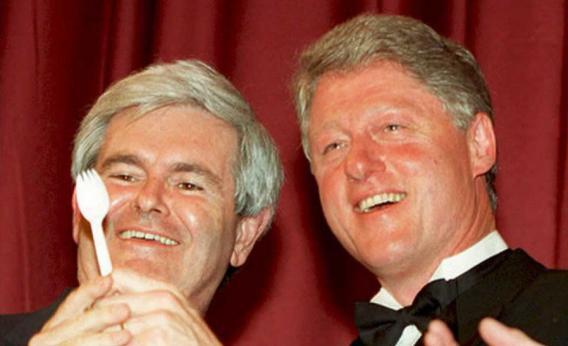People tend to take a very president-focused view of the political system, but looking ahead I think the biggest question in public policy for 2013 isn’t about Barack Obama it’s about John Boehner and his colleagues. The question is: Do House Republicans want to accomplish anything? In other words, are there any important conservative policy goals they’re hoping to achieve in the next two years.
One possible answer is no. Clearly the outlook for conservative public policy isn’t that good with Democrats in the White House and the Senate, the 2014 midterms will almost certainly strengthen their hand, and the GOP controls most of the state governments in the United States so there’s ample room for conservative policy initiatives of a non-federal nature. Under the circumstances, viewing the congress as primarily a bastion from which to block liberal initiatives and create conservative messaging points is perfectly reasonable.
But maybe there are things House Republicans really want to do!
For example, maybe someone out there really does want to end federal funding for the Corporation for Public Broadcasting. I bet they could get that done. In fact, I bet they could come up with a longish list of small programs that don’t speak to the core functions of the federal government and say “we’d like to scrap these.” Say, “look you created this big Dodd-Frank framework in your first term and you know we don’t think it was a good idea. But if you think it’s truly as important as you say, show us you mean it by offering up some of these small-bore programs and we’ll use those savings to fund implementation.” Nice deal. The White House would go for it both because they like Dodd-Frank, because some liberals think the GOP is right on the merits about PBS, and most of all because Obama thinks bipartisan dealmaking makes him look good.
And he’s right. Which is one reason Republicans spent his first term trying to make sure no deals got done. Why should they want to do things that make him look good?
Well it turns out that there’s potentially one good reason. Since bipartisan deals make the president look good, and since the president wants to look good, congressional Republicans can take advantage of that fact to broker deals to advance their policy goals. Welfare reform in 1996 is a great example. Many liberals viewed that bill as a sellout on substantive terms, and many Republicans viewed it as a sellout on political terms. Bill Clinton’s ability to deliver a bipartisan deal on welfare made it harder for Bob Dole to beat him in November. But then again, Republicans’ willingness to let Clinton deliver a bipartisan deal on welfare got welfare reform passed. As it happens, the 1996 election wasn’t even close. Clinton almost certainly would have won even if Newt Gingrich had been more supportive of Dole’s political goals. By the same token, the obstruction strategy of 2009-2012 succeeded in denying Obama feel-good moments of bipartisanship but it didn’t cost him the election. If Republicans are willing to give up those warm fuzzies any president craves, they’ll be able to actually move the ball forward on some issues.
